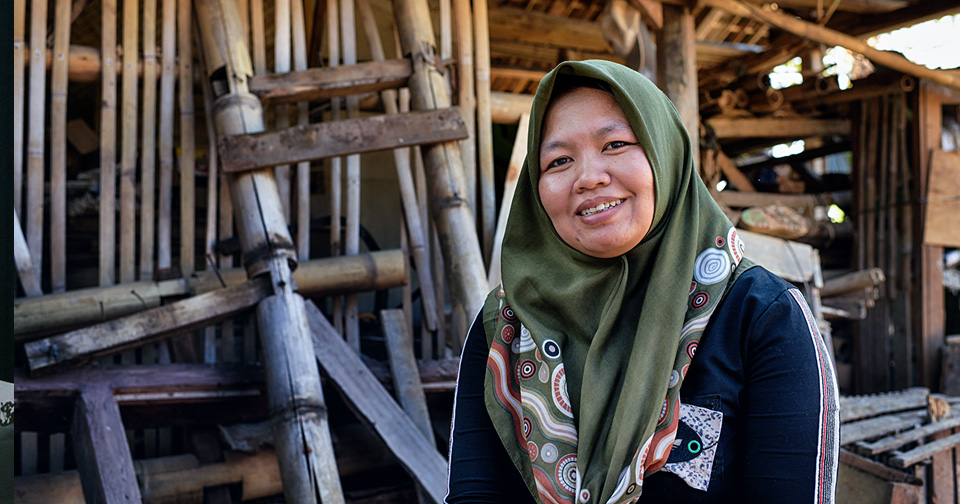Journeys out of the Ordinary | Ida's story
Date:

Like most people, earning money was my motivation to go work overseas. My first job was in Malaysia and it was not a good experience, but I lasted three years with the same employer. The second time I left was for different reasons. My husband had been unfaithful, and when I confronted him, he beat me. We divorced and he took my children from me.
I thought my life couldn’t get any worse, but then my husband’s best friend raped me. I didn’t report it because I knew I would be the one who was judged.
I was at my lowest point then, so I found a job overseas to escape my shattered life. I worked for a family in Singapore. The oldest daughter, who was 19, had a bad temper and physically abused me. I asked my employers several times to do something about it but they didn't believe me. Finally, I fled to the Indonesian embassy and went home.
A few months later I went back to Singapore to work, and at my next employers’ house, there was another Indonesian domestic worker there. She would withhold food and water from me, and would hit me. But the employers took her side because she had been there longer.
One time, the other domestic worker poisoned my food. I passed out, and woke up in the hospital with a kidney condition that needed surgery. My employer only agreed to pay the deposit money toward the surgery and I had to pay the rest myself. I didn’t have the money.
But at that time I was a member of a migrant workers’ organization in Singapore, and when the other members learned of my situation, they collected money for my surgery.
This is what inspired me to help others. My fellow migrant workers also stepped in and collected money to help me get home, and I promised myself that I would do the same when I got there.
Back in Indonesia, I became active in a migrant workers’ association. The head of the organization, a man called Mifta, supported me and believed in me. He helped me have the courage to establish a new chapter and become a leader. He became a mentor to me.
Sadly, he passed away last year. Mifta was my hero and his belief in me helped me to achieve so much.
I still get emotional when I remember how my fellow migrant workers supported me through a very tough time, when I had no one else. Since then, I have learned so much. I followed trainings, and learned about advocacy and case management, how to support migrant workers and build a network, and how to work with the Government and other organizations. I have established a chapter of the migrant workers’ association in my district and I give pre-departure trainings and training to returnees. The Government trusts me to design empowerment programmes in the community and I’m often invited to be a speaker at events about migration and protection of migrant workers.
I think of this organization like family and I will never forget what they did for me. We support each other. It's not always easy, and there is so much to do and too few resources, but I know that what I’m working for is right.
My message to fellow migrant workers is: “Please remember that we are all in this together. We all want to improve our lives. We’re not competitors”.
To women migrant workers is: “We are equal to men, so don’t think of yourself as lower. Take advantage of opportunities to become empowered”.